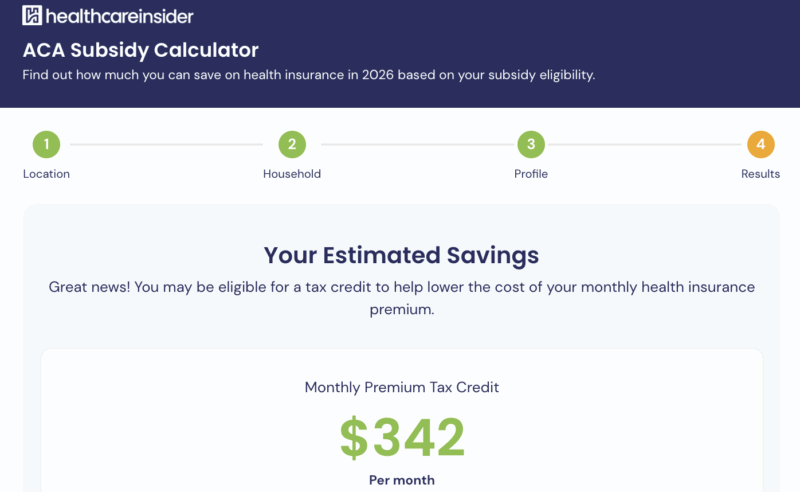Written by James Yoo
Reviewed by Frank Lalli
We want to help you make educated healthcare decisions. While this post may have links to lead generation forms, this won’t influence our writing. We adhere to strict editorial standards to provide the most accurate and unbiased information.
Key Article Highlights
- Emergency Care Coverage: The EMTALA ensures emergency medical treatment regardless of insurance, but uninsured patients face full bills for all services.
- Negotiating Bills: Uninsured patients can negotiate hospital bills, seek financial assistance, and often receive discounts from hospitals and doctors.
- Urgent Care Alternative: For non-emergencies, urgent care centers offer lower costs than ERs and may be a more affordable option.
If you end up in the hospital in an emergency without health insurance, doctors and medical professionals are required to treat you as a patient in need. This is because the Emergency Medical Treatment And Labor Act or EMTALA “[ensures] that any individual with an emergency medical condition, regardless of the individual’s insurance coverage, is not denied essential lifesaving services.”1
However, if you don’t have health insurance, you will be billed for all medical services, which may include doctor fees, hospital and medical costs, and specialists’ payments. Without an insurer to absorb some or even most of those costs, the bills can increase exponentially.
Who Pays for Medical Bills
When you have insurance, depending on your plan, your health insurance pays for at least a portion of your medical services, including doctor’s visits, prescription drugs, and emergency room trips. You’ll pay the rest of the bills through a copayment, coinsurance or a deductible, which is the amount you pay until insurance coverage starts.
Without coverage, you’ll be liable for the entire bill, both from the hospital or a doctor who accepts you as a patient. You can inquire about the cost of treatment ahead of time, outside of emergency situations, of course. Costs vary, often extraordinarily, so it’s smart to call ahead or check a hospital’s website for details.
Negotiate Your Hospital Bills
Hospitals may grant uninsured individuals discounts or allow patients to pay negotiated amounts over time. For example, negotiated bills are often split into monthly amounts. It is always best, when possible, to negotiate bills before you are hospitalized, such as for elective surgery or to have a child.
You can also ask the hospital ombudsman or payment department about financial assistance programs, sometimes called “charity care” that can adjust your bills to your ability to pay. In fact, non-profit hospitals are required by law to offer assistance plans to low-income patients.
In addition, sometimes applying for assistance can halt bill collectors. Hospitals would rather work out payments with patients for various reasons, including that collectors typically keep 50% of whatever they get from patients.
One more tip: If possible, you are usually better off negotiating with an ombudsman, who is there to resolve patient issues, rather than the billing department that exists to collect revenue.
Also, many individual doctors regularly work with patients who don’t have the ability to pay the full cost of their care. Their policies vary but many physicians routinely cut bills in half for the needy and even may slash bills to as little as 10%.
Visit an Urgent Care Center
If you’re not experiencing a true emergency, you may want to visit a nearby urgent care center. Urgent care professionals, who may be nurse practitioners rather than physicians, can treat minor illnesses or injuries. They will also advise you if they believe you need more medical care or if you should go to the ER.
Urgent care often costs roughly half as much as a trip to the ER. For example, a visit to an urgent care center will cost you the office visit and any prescription drug or lab fee costs you may need.
By comparison, an ER trip will entail hospital costs, doctor fees and then your prescription and lab fees, all of which are almost always considerably higher than those billed by an urgent care center. However, at an urgent care center, you may have to pay in advance if you don’t have health insurance.
A team of licensed insurance agents are here to help you compare plans
Covering Your Visit With Health Insurance
Unfortunately, in recent years, the percentage of uninsured and under-insured has increased. Currently, about 28 million Americans are uninsured and an estimated 30 million are underinsured.
One reason the number of uninsured is rising is that the federal government is no longer requiring people to maintain health insurance, though five states do require it: California, Massachusetts, New Jersey, Rhode Island, and Vermont, plus the District of Columbia.
The individual mandate requiring virtually everyone to have health coverage or pay a tax penalty was passed in 2010 as a part of the Affordable Care Act (ACA). That financial incentive led many to get insurance, often carefully comparing and choosing a health plan that best suited their needs and budget. But now with this section of the ACA no longer being enforced by the federal government, many people have dropped their insurance.
Signing up for health insurance during the Open Enrollment Period helps you avoid shouldering the entire cost for large medical bills stemming from serious injury or illness. Most people declare bankruptcy due to medical costs, rather than for any other reason. Undoubtedly, having health insurance can play an indispensable role in helping people maintain their financial security.
If you end up at the hospital without health insurance, doctors are required to treat you no matter what.
FAQ
You have several options for health insurance no matter your income or family situation.
Affordable Care Act
- You can enroll in an ACA plan during the fall Open Enrollment Period (usually between November 1 through January 15).
- You can also sign up if you had a major life event occur like marriage or the birth of a child. In that instance, you can enroll during a Special Enrollment Period.
- You can get help paying for your monthly premium. The amount of aid depends on how much you make. (You can use our subsidy calculator to figure out how much).
- Sign up online at healthcare.gov or with the help of a licensed agent or navigator.
Short-Term Health Insurance
- Temporary coverage meant to bridge gaps between major medical insurance.
- Sign up anytime.
- Premiums are generally lower although benefits are limited as well (compared to an ACA plan).
Medicaid
- You can enroll in Medicaid, which is free or low-cost public health insurance.
- You can sign up anytime although eligibility varies by state. (A good place to start: benefits.gov)
Children’s Health Insurance Program (CHIP)
- Your children can get free or low-cost health and dental plans coverage through CHIP.
- You can sign up anytime although eligibility varies by state (like Medicaid). (A good place to start: insurekidsnow.gov)
Thank you for your feedback!
Department of Health and Human Services, Centers for Medicare and Medicaid Services. “Medicare Program; Emergency Medical Treatment and Labor Act (EMTALA): Applicability to Hospital Inpatients andHospitals With Specialized Capabilities.” Federal Register 77, No. 22 (February 2, 2012) (accessed August 2018).


 by
Frank Lalli |
Updated on
August 18, 2025
by
Frank Lalli |
Updated on
August 18, 2025 




